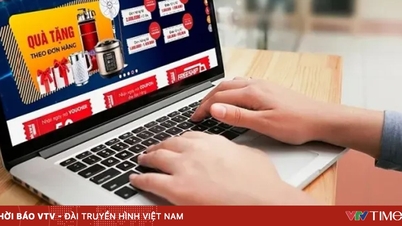Digital signature is a solution to authenticate and sign electronic documents using encryption, allowing the signer to be identified, ensuring data integrity and non-repudiation after signing. In Vietnam, digital signature has become an essential tool for businesses and individuals in electronic transactions: tax declaration, electronic invoice issuance, contract signing, sending administrative records, banking transactions, etc. This article clearly presents the concept, types of digital signature, practical utilities, registration methods, costs, safety notes and recommendations for businesses and individuals.

What is a digital signature and what is its legal value?
A digital signature is an electronic value associated with electronic data (text, files, invoices, etc.), created using a public key encryption algorithm (PKI). When a document is digitally signed, the system creates a key pair (public key and private key). The private key is kept secret by the signer to create the signature; the public key is used to verify the signature and authenticate the origin and integrity of the document.
Legally, digital signatures have the same authentication value as handwritten signatures and seals in many types of electronic transactions according to current regulations: signing documents, contracts, electronic records; are mandatory/accepted means in many tax procedures, customs, declarations, electronic invoices, online public services. Therefore, digital signatures help transacting parties have a basis to prove the origin and avoid disputes over signatures.
Common types of digital signatures
Digital signature attached to device (token/USB): private key stored in USB token device; when signing, need to plug token into device and enter PIN.
SIM PKI digital signature (digital signature on phone SIM): private key stored in the SIM of the mobile subscriber; convenient for signing on the phone.
Cloud digital signature / electronic digital signature (e-signature on cloud platform): private key is kept by the provider in a secure environment (HSM). User signs using multi-factor authentication (password + OTP/biometric). This form is increasingly popular because of its convenience, supporting quick signing on web/mobile.
Specialized/third-party digital signatures: provided by digital signature certification service providers with management and integration services for businesses.
Practical applications — where can digital signatures help you?
Declare taxes, submit electronic declarations, look up and sign declarations with tax authorities.
Issuing and signing electronic invoices (mandatory for many businesses).
Sign electronic contracts, administrative documents, reports, labor contracts, sales contracts.
Transactions with state agencies (online public services), business registration, bidding documents submission, customs procedures.
Electronic banking transactions: transaction authentication, large transaction approval, electronic document signing.
Internal corporate governance: signing and approving procedures, approving expenses, accounting documents, storing legally valid electronic documents.
Outstanding benefits of digital signature
Save time: sign - exchange - approve right on the electronic platform, no need to print or deliver.
Cost savings: reduce printing, storage, transportation, and paper document management costs.
Speed up transactions, e-commerce: expand remote signing capabilities, make cross-border transactions easier.
Safety & legality: ensures data integrity, authenticates signers; digitally signed documents can serve as witnesses in disputes.
Environmentally friendly: reduce paper usage, save resources.
Automatic integration: easy to link with ERP, CRM, accounting software, electronic invoice systems.
How to register, issue and use digital signatures (overview)
Choose a reputable digital signature certification service provider. In Vietnam, there are many commercial providers that provide digital signatures for businesses and individuals (token services, SIM PKI, cloud signature). Choose according to your needs: sign on computer (USB token), sign on phone (SIM PKI) or multi-platform (cloud) signing.
Prepare documents: legal documents (for businesses) or ID card/CCCD/passport (for individuals), representative information, authorization letter (if required).
Submit application, verify identity: directly at the issuance point or through the electronic KYC process if supported by the supplier.
Receive device or activate cloud service: receive USB token or activate SIM/app, receive key and user manual; set up PIN/OTP.
Install software/driver: install token driver and signing software or log in to cloud signature portal to sign documents.
Signing & storage: sign documents by the required method; store digital signature and/or certification files on an electronic storage system to ensure retrieval.
Reference cost
Enterprise: typically pays an initialization fee + annual subscription fee; package may include USB token or SIM PKI or cloud signature. Price depends on the provider, number of certificates needed and additional services (integration, support).
Personal: cheaper plans available; if using PKI SIM, can be added to mobile bill; cloud signature plans available per user.
(Actual costs vary by provider and service configuration; businesses should compare multiple providers before signing up.)
Risks, limitations and safety precautions
Lost/Loss of Private Key: If the USB token is lost or the SIM is hijacked, lock the certificate immediately to avoid misuse. Always keep your PIN, OTP code secure and do not share your private key.
Legality depends on compliance: for a digitally signed document to be legally recognized, the issuance, authentication and certification process must comply with applicable standards and regulations.
Compatibility note: some administrative and banking systems have their own technical requirements (signature format, certificate time, PKI standard). Before purchasing, check compatibility with the software/system you use.
Maintenance & backup: for cloud signatures, ask the provider about backup plans, HSM security and SLA; for USB tokens, keep multiple valid copies of issuance records (do not backup private keys to an unsafe place).
Staff training: signing errors (signing the wrong document) can cause damage; guidance on signing, archiving and checking procedures is needed.
Recommendations for businesses and individuals
Enterprises: assess signing needs (number of signatures/day, signing on mobile or desktop devices, system integration), choose the appropriate signature type (token if high security is needed; cloud if convenience and API integration is needed). Compare at least 3 providers on security, integration capabilities, after-sales service and price. Set up internal processes (who signs, stores, verifies).
Personal: If you often sign contracts, declare taxes or do banking transactions, you should own a digital signature (PKI SIM or cloud) for convenience. Keep your PIN/OTP safe and update your password regularly.
Both: before signing a major contract, double-check the data to be signed; store the original with the digital signature in a safe place; lock the certificate immediately if it is suspected of being compromised.
Legal & compliance: when in doubt about the legal validity in a particular case (dispute, special transaction), consult a legal expert to ensure the digital signature and process you use meet the requirements of proof in a court or competent authority.
Conclude
Digital signature is a key tool in digital transformation, helping to optimize processes, reduce costs and increase security for electronic transactions. With the development of cloud signature and SIM PKI, the application of digital signature is increasingly convenient, suitable for both small and medium enterprises and individual users. However, to maximize benefits and minimize risks, it is necessary to choose a reputable supplier, comply with the issuance/certification process and implement strict internal management.
Source: https://baovanhoa.vn/nhip-song-so/chu-ky-so-chia-khoa-cho-giao-dich-dien-tu-an-toan-va-nhanh-chong-168593.html


![[Photo] General Secretary To Lam, Secretary of the Central Military Commission attends the 12th Party Congress of the Army](https://vphoto.vietnam.vn/thumb/1200x675/vietnam/resource/IMAGE/2025/9/30/9b63aaa37ddb472ead84e3870a8ae825)

![[Photo] The 1st Congress of Phu Tho Provincial Party Committee, term 2025-2030](https://vphoto.vietnam.vn/thumb/1200x675/vietnam/resource/IMAGE/2025/9/30/1507da06216649bba8a1ce6251816820)
![[Photo] General Secretary To Lam receives US Ambassador to Vietnam Marc Knapper](https://vphoto.vietnam.vn/thumb/1200x675/vietnam/resource/IMAGE/2025/9/29/c8fd0761aa184da7814aee57d87c49b3)

![[Photo] Solemn opening of the 12th Military Party Congress for the 2025-2030 term](https://vphoto.vietnam.vn/thumb/1200x675/vietnam/resource/IMAGE/2025/9/30/2cd383b3130d41a1a4b5ace0d5eb989d)































![[Photo] General Secretary To Lam attends the ceremony to celebrate the 80th anniversary of the post and telecommunications sector and the 66th anniversary of the science and technology sector.](https://vphoto.vietnam.vn/thumb/1200x675/vietnam/resource/IMAGE/2025/9/29/8e86b39b8fe44121a2b14a031f4cef46)

































































Comment (0)